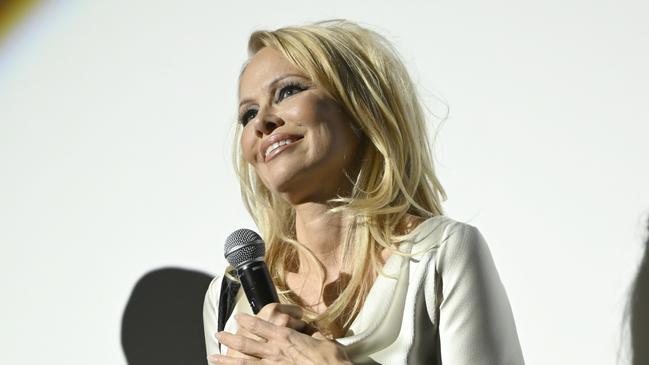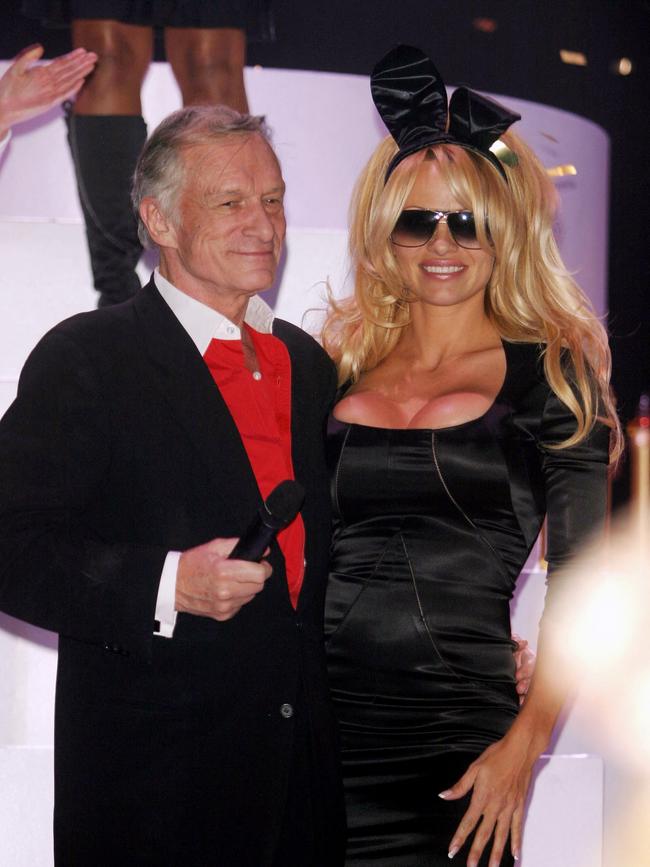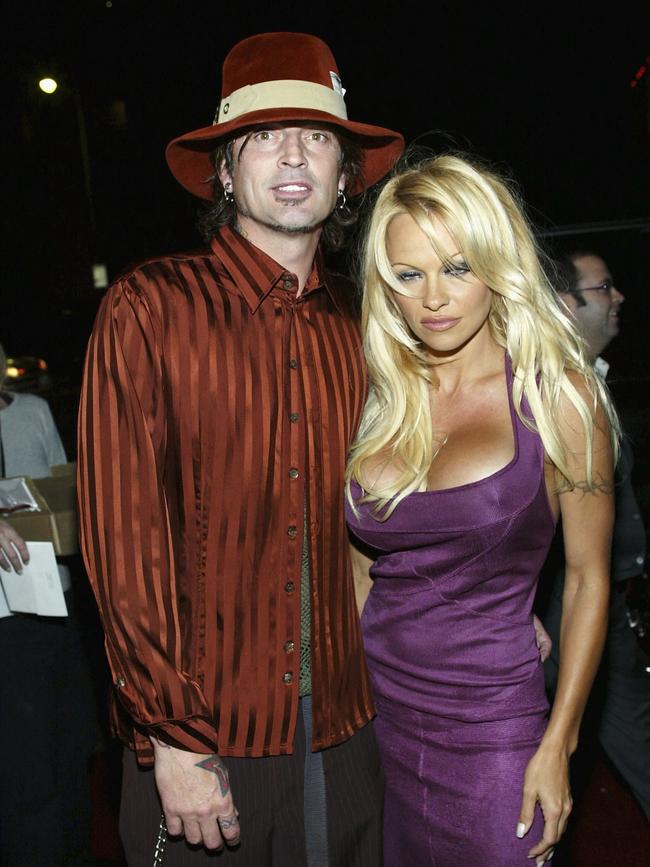Pamela Anderson’s memoir is graceful and disturbing
Pamela Anderson only ever played the role of a nymph; in reality, her spirit is that of Pan – fertile, romantic and ungovernable.

In 1996, the 11-season Californian lifeguard action drama Baywatch attracted more than a billion viewers each week in 142 countries – according to the Guinness Book of World Records, it was the most widely viewed TV series in history – and Playboy alumna Pamela Anderson, now 55, was its cynosure: a buttery confection of salt, silicone and sugary giggles, she played the character CJ Parker, a romantic character producers based on the actress.
International broadcasters were, for the most part, only interested in syndicating episodes that featured Anderson (the “Pamela clause”). After five seasons, she was earning $US300,000 per episode – a risible amount in comparison to the billion-plus Baywatch made for its producers. Anderson, who now lives alone in a small house on the small island of her birth, makes a meagre $US4000 per year from the show, but, as her graceful and disturbing memoir Love, Pamela makes clear, she has grown accustomed to injustice.
Anderson’s childhood adhered to a Nabokovian template. She writes of her lively, loving, troubled, sexually intoxicated waitress mother; of her sexually intoxicating alcoholic furnace repairman father, a man who oscillated between affection and violence (he drowned her kittens in her presence, and tried to shove her mother’s face onto a stove’s active hob); of poverty in the cold, remote northern latitudes; of her sexual abuse between the ages of six and 10 by a female babysitter (who expired in a car crash after Anderson expressed the wish that she would die); and of her rape by a 25-year-old man at the age of 12 (“I was blinded by pain”).
The men Anderson chose as partners were equally disrespectful. One gang-raped her with a group of friends; she was both kicked and kicked out of moving cars; a tray of silverware was thrown at her head (she ducked); and she was repeatedly – and viciously – verbally abused.
A long-devoted animal welfare advocate, the now-vegan Anderson remembers mustering the courage to enter the pump house her hunter father had warned her to avoid, opening “the creaky door to see a headless deer hanging upside down. A large, muscular body, dripping blood into a bucket”. Her attention was drawn to “the severed head sitting next to the body on a bloody stump. I took in the big, dead eyes, dark and deep, rimmed by thick lashes”.
As symbolism goes, it’s not obscure. There was only so much emotional and sexual trauma the adolescent Anderson could take.
Ironically, Playboy – historically, one of the most toxic forces in terms of distorting the cultural perception of women – saved Anderson. While she had the distinction of appearing on more covers of the magazine than any other model, the standard pornographic homogenisation and commodification (waxing, bleaching, breast augmentation, intellectual minimisation) had a unique impact: far from obscuring her individuality, it transformed her into a global icon. In conjunction with this sex-toy body, Anderson’s tiny voice and pale, blurred features, a legacy of her Finnish ancestry, remain uniquely compelling.

Instinctive rather than meditative, ever-giving of herself and exaggerated in her golden femininity, Anderson was experienced as the ur-mother – ever-accessible, routinely trivialised. It was a potent amalgam, and men responded so intensely to this near-impersonal stimulation, seeking to contain it through ownership, that they became violent.
The relationship for which Anderson is best known – she married six times – was with Motley Crue drummer Tommy Lee, her first husband and the father of her two sons. Having met at a LA nightclub, they married four days later in Cancun, where Anderson had travelled for work. She was involved with world champion surfer Kelly Slater at the time – he was the first she called about the marriage – but Lee’s dysregulated masculine persistence dazzled her.
Anderson remembers her aunt telling her that “you get to have only one true love, and once you found it, whether you kept it or lost it, you’d never recover”.
Pam and Tommy, the 2022 biographical drama series and one of the most-watched series on all platforms at the time, presented a highly stylised, partially inaccurate depiction of their marriage but captured the tender, compulsive intensity of their passion, one which Anderson now recognises as the only real love she has ever known.

“The rest of my life, my relationships paled in comparison,” Anderson writes. “It was a losing battle … Inherently, children are the memory of love it took to make them. And every time I looked at (my sons), I saw Tommy. Nothing I did could stop the pain. There was no replacement. I felt like a failure. I blamed myself and I blamed Tommy for the fact that we could not keep the most important relationship of our lives together for the boys.”
Actress Marilyn Monroe struck many of the same chords, if to different effect: she lacked Anderson’s fundamentally mutinous spirit, and this is, perhaps, Love, Pamela’s greatest surprise.
False eyelashes, pink lip gloss and waxed pudendum aside, Anderson, as close friends Vivienne Westwood and Wernor Herzog knew, is true punk. An outrageous, creatively gifted sexual sophisticate and anti-porn campaigner with a gargantuan appetite for life, she is unpredictable by definition. She continues to shrug off exploitation by men who have grown rich on her beauty; to do otherwise would be to adopt their spiritually cauterised values.
Pamela Anderson only ever played the role of a nymph; in reality, her spirit is that of Pan – fertile, romantic, ungovernable: the fuse that drives the Spring.
Antonella Gambotto-Burke’s new book, Apple: Sex, Drugs, Motherhood and the Recovery of the Feminine, can now be ordered online.
Love, Pamela

To join the conversation, please log in. Don't have an account? Register
Join the conversation, you are commenting as Logout